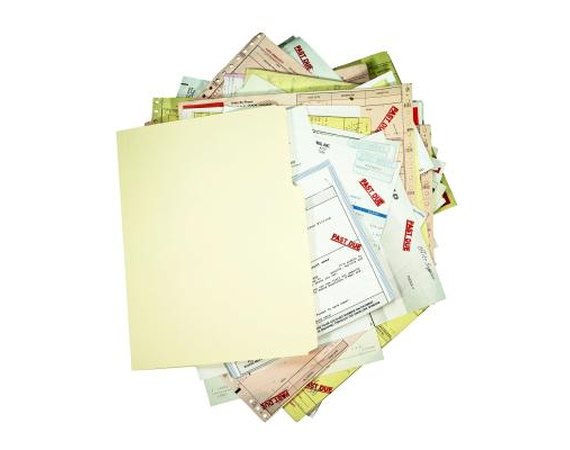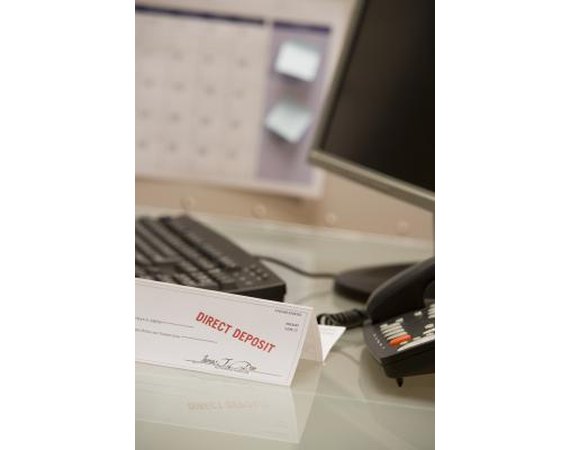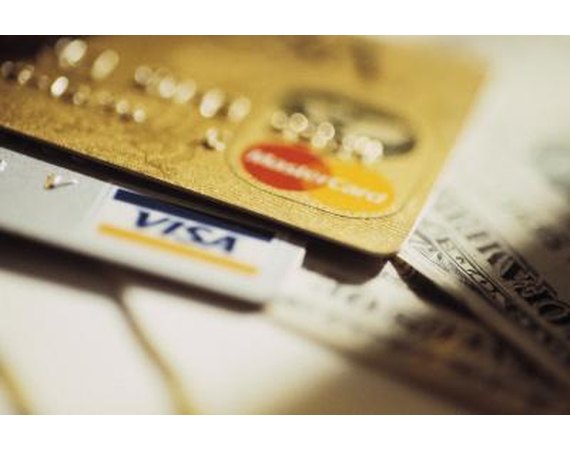
Consumers who are drowning in a sea of debt and are seeking assistance will be relieved to know here are several places to turn for help. From do-it-yourself debt reduction to nonprofit debt management services to consolidation loans, there are many options to consider, especially if you are considering filing for bankruptcy. The keys to successful debt reduction are doing homework in advance, hard work and being honest with yourself.
When there are a stack of unpaid bills on your desk, it may feel like your creditors want you to fail. The opposite is true: creditors are anxious to work with you to get your loans repaid. Start by making a list of your debts, including balances, interest rates, minimum payments and telephone numbers. Call each customer service department and ask if they'll reduce your interest rate: agents are often authorized to adjust rates over the phone. If possible, keep paying the same amount even if your minimum payment is reduced, because more of your money will be applied to your principal balance, and your debt will be paid off faster.
"Pushing" your payments is a terrific way to reduce debt quickly. Instead of spreading out your payments over multiple bills, put as much money as possible toward your highest-rate bill, while paying only the minimums on the rest. When the first bill is paid, apply that payment to the next highest rate, continuing until you are debt-free. The website Vertex 42 offers several free downloadable debt reduction worksheets to help you on your way.
If you are behind on your payments or about to fall behind, consider credit counseling and debt management. Contact the National Foundation for Credit Counseling. The NFCC will give you a one-hour consultation with a certified agent, free of charge. If you are eligible, the counselor will enroll you in a debt management plan.
In a "DMP," you will make a combined monthly payment to the credit counseling organization for up to five years. The organization will disburse funds to your creditors on your behalf. A DMP is not a loan, and your accounts will be closed. In exchange, the counselor may be able to reduce your interest rates, eliminate fees, and lower your payment. The counselor also works with creditors so your credit history of on-time payments is reestablished.
Debt consolidation loans are effective but very tricky. If your debt problem is the result of a temporary job loss or medical bills and not overspending, consolidation loans can offer low interest rates and initiation fees. Home equity loans, a very common type of consolidation loan, are often tax deductible. It's also possible to refinance your car loan to pay off debt. More scarce are unsecured debt consolidation loans (meaning, the loan is not tied to an asset, like a house or a car.) Be wary, as these loan terms are not likely to be friendly.
The best case scenario is that you're able to make on-time payments and have the means to "push," as described above. If not, be advised that debt management plans can be reported to credit bureaus, which could lower your credit score. Keep this in mind if you need to apply for a loan in the near future. A DMP looks better than late payments, however.
Although debt consolidation loans may not affect your credit as harshly, realize that you are securing debt by your home or car. If you default, the asset could be seized. If you are not financially disciplined, simply acquiring a new loan to pay off the old means the behavior hasn't changed. If you ring up more debts, you'll be in deeper water and at much greater risk of default.






























